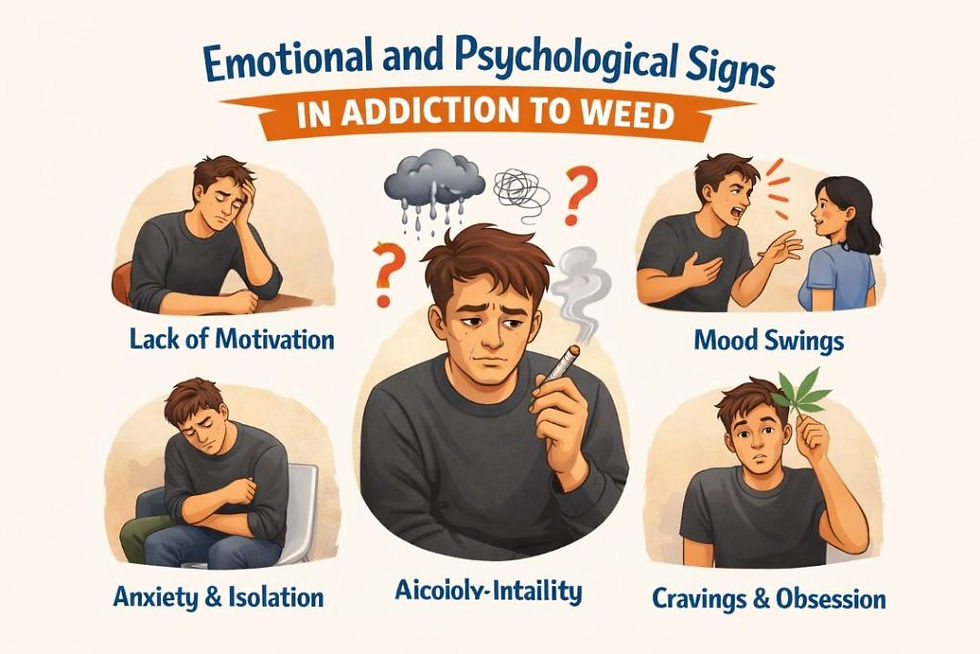Anxiety Disorders: Causes, Symptoms, Treatment & Types
- Felicia Parris

- Mar 19, 2025
- 3 min read
Millions throughout the world experience anxiety disorders which emerge as among the prevalent mental health conditions worldwide. Anxiety that stays with a person or exceeds normal levels turns into a medical condition needing expert care. This article will present an exploration of anxiety disorder causes together with symptom descriptions and therapeutic solutions and diagnostic categories to enable better treatment decision-making.
What is an Anxiety Disorder?
Excessive fear or worry and nervousness as symptoms of a mental health condition cause significant disruption to regular life activities. Permanent anxiety disorders stand in contrast to brief stress-induced anxiety because they belong to a chronic condition which disrupts personal functioning at home and job as well as general health conditions.

Causes of Anxiety Disorders
Researchers still have not determined the complete causes of anxiety disorders even though multiple elements could activate their development such as:
The tendency to develop an anxiety disorder rises when people have relatives who have this condition.
The levels of dopamine and serotonin neurotransmitters in the brain may determine human mental health.
Traumatic events alongside abuse along with prolonged stress have been found to create anxiety disorders in individuals.
Heart disease among other medical conditions together with thyroid disorders sometimes act as contributors towards anxiety development.
Studies prove that drug or alcohol use as substance abuse will either create anxiety symptoms or make existing symptoms much worse.
Symptoms of Anxiety Disorders
The range of symptoms in anxiety disorders changes based on the specific diagnosis yet shared characteristics usually involve:
Excessive worry or fear
Restlessness or feeling on edge
Rapid heartbeat and breathing difficulties
Trouble sleeping
Sweating, trembling, or dizziness
Difficulty concentrating
Ashamed individuals avoid encountering triggers that lead to anxiety.
Consistent symptoms require immediate expert evaluation for the affected individual or for someone who needs assistance.
Types of Anxiety Disorders
Various forms of anxiety disorder exist with distinctive features between them for symptoms and triggering factors. The most common include:
1. Generalized Anxiety Disorder (GAD)
A person with generalized anxiety disorder has persistent concerns which surpass normal worrying about their employment, health or bank accounts. Panic levels exceed the real circumstances to the point that they distract from regular activities.
2. Social Anxiety Disorder
Social phobia which is also called anxiety disorder produces intense fear reactions during specific social settings that result in the compulsive act of social avoidance because people fear they will attract judgment from others. Medication combined with psychiatric therapy consist of standard components for treating social anxiety disorder effectively.
3. Panic Disorder
The medical condition consists of unpredictable panic attacks which trigger heart racing changes alongside heavy breathing together with spinning sensations. These panic attacks appear suddenly without warning so people fear another unexpected attack in the future will occur.
4. Obsessive-Compulsive Disorder (OCD)
Patients with OCD must endure recurrent intrusive thoughts which trigger repeated efforts to cut down anxiety through compulsive behaviors. The behaviors prevent people from performing their routine activities while damaging their social interactions.
5. Post-Traumatic Stress Disorder (PTSD)
PTSD appears following a person's survival of a traumatic event. The symptoms associated with PTSD include recurring flashbacks along with repetitive nightmares extreme anxiety levels while showing reduced emotional reactions.
Treatment of Anxiety Disorders
Medical professionals can cure anxiety disorders by implementing different therapeutic practices and life-style modifications. Treatment options include:
1. Psychotherapy
Cognitive-behavioral therapy functions as the top therapy to treat patients with anxiety disorders. Through therapy people can discover patterns of harmful thinking which leads them to build useful methods to deal with their anxiety.
2. Medication
Patients who take anxiety disorder medication find relief from their symptoms. Common types include:
The medical treatment of anxiety involves long-term administration of Selective Serotonin Reuptake Inhibitors (SSRIs) which include fluoxetine and sertraline.
The short-lived treatment from benzodiazepines includes prescription medications like alprazolam and diazepam despite their habit-forming nature.
Beta-Blockers function as medication to treat rapid heartbeat together with other physical anxiety manifestations.
3. Lifestyle Changes
Anxiety symptoms improve considerably through selections of healthy lifestyle decisions. Some effective strategies include:
Steady exercise practice generates endorphin release which serves to minimize mental pressure.
Detached Mindful Practices such as deep breathing together with yoga teach mental relaxation.
A balanced diet emerges from refraining from alcohol and caffeine and processed foods since these items impact mood stability.
Establishing a routine plan for sleep will lead to better mental health outcomes.
Seeking Help for Anxiety Disorders
The treatment of anxiety disorders requires professional assistance for anybody experiencing these disorders or someone they care about. Involving treatment at an early stage blocks symptom developments and brings better life satisfaction.
Deland Treatment Solutions features expert mental health care services for treating anxiety disorders alongside depression and different psychiatric illnesses. Reach us now at (386) 866-8689 to set up an appointment where our specialized experts will design a treatment plan you require.



Comments